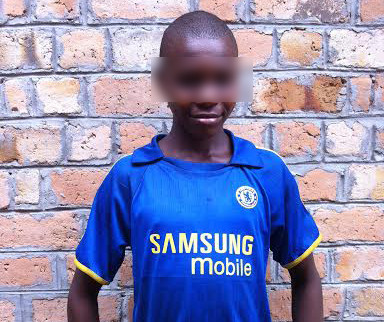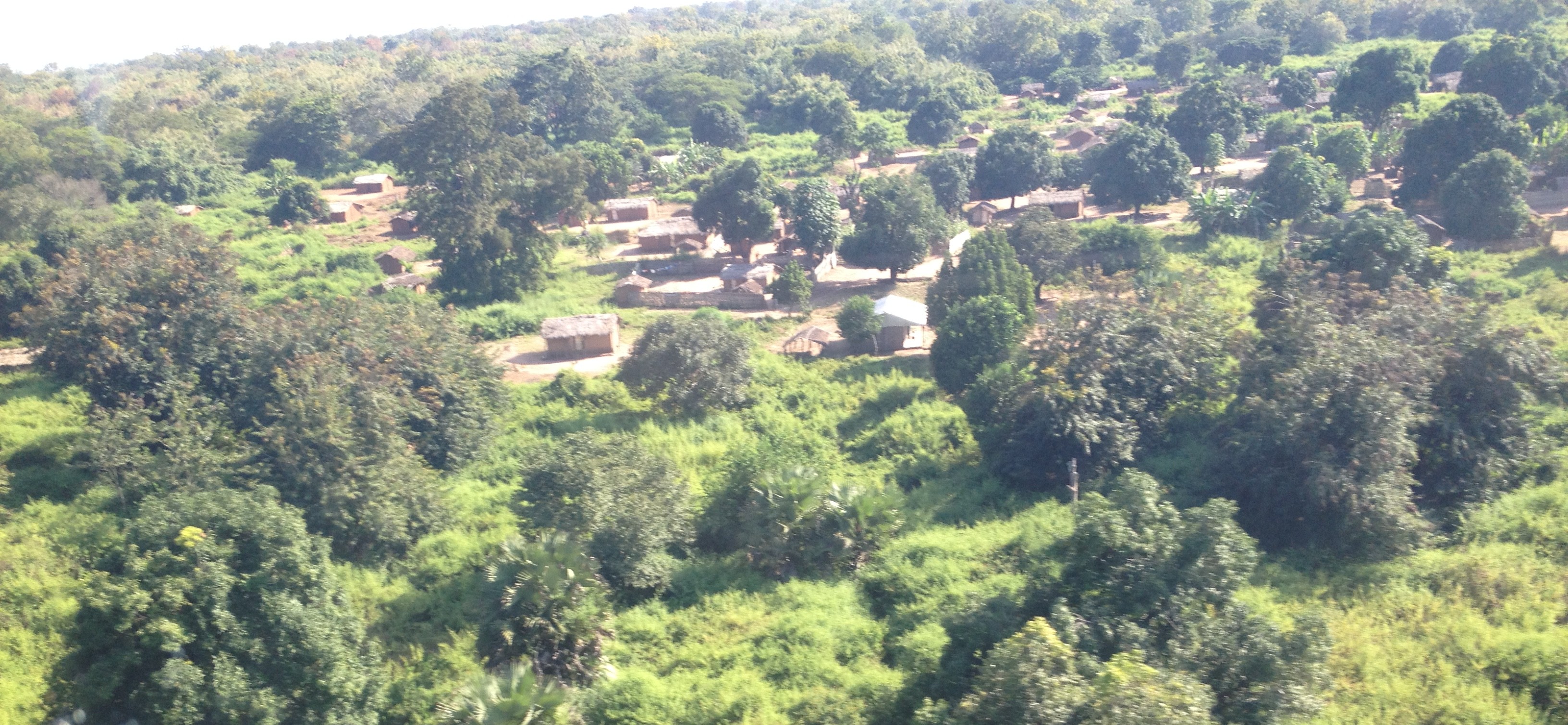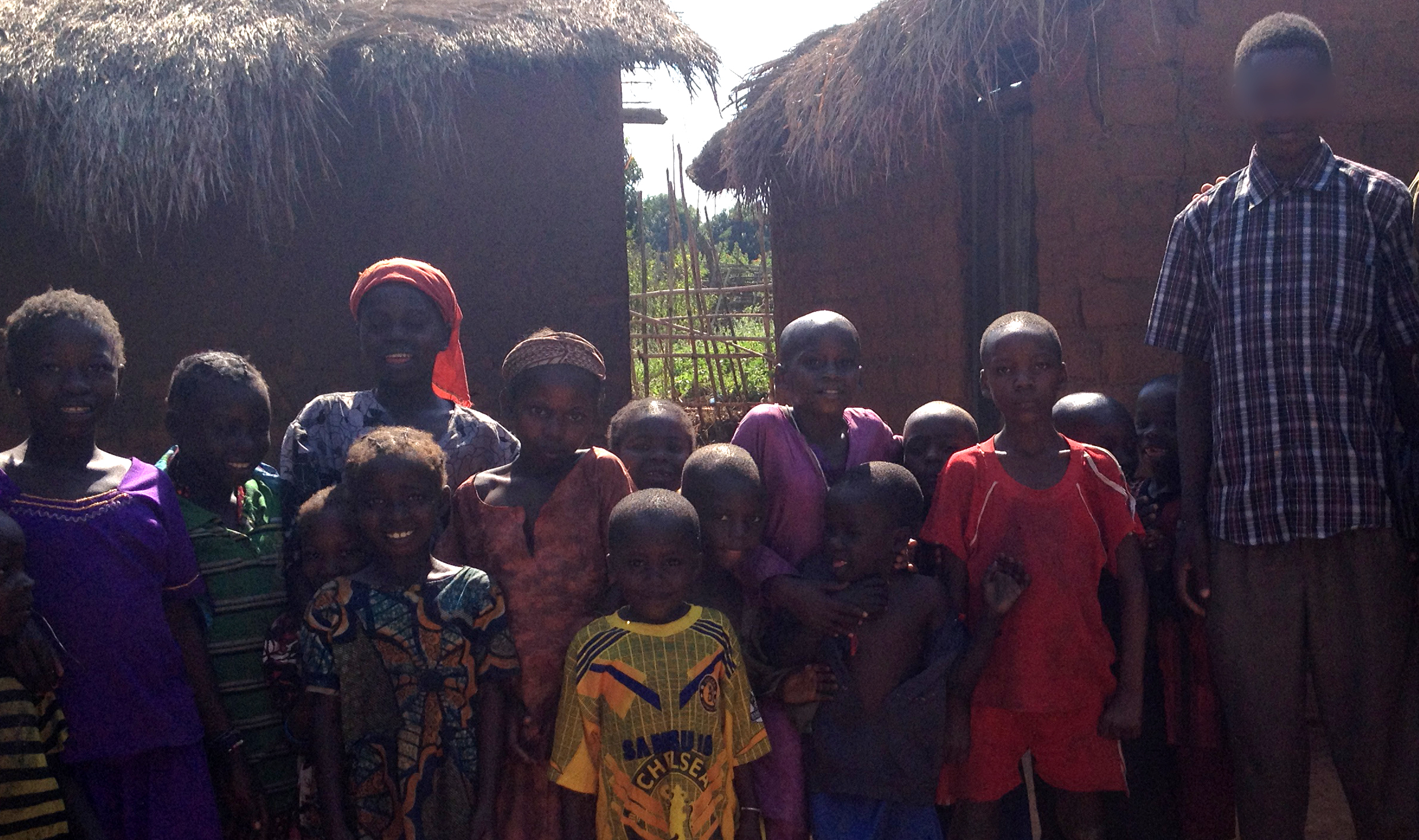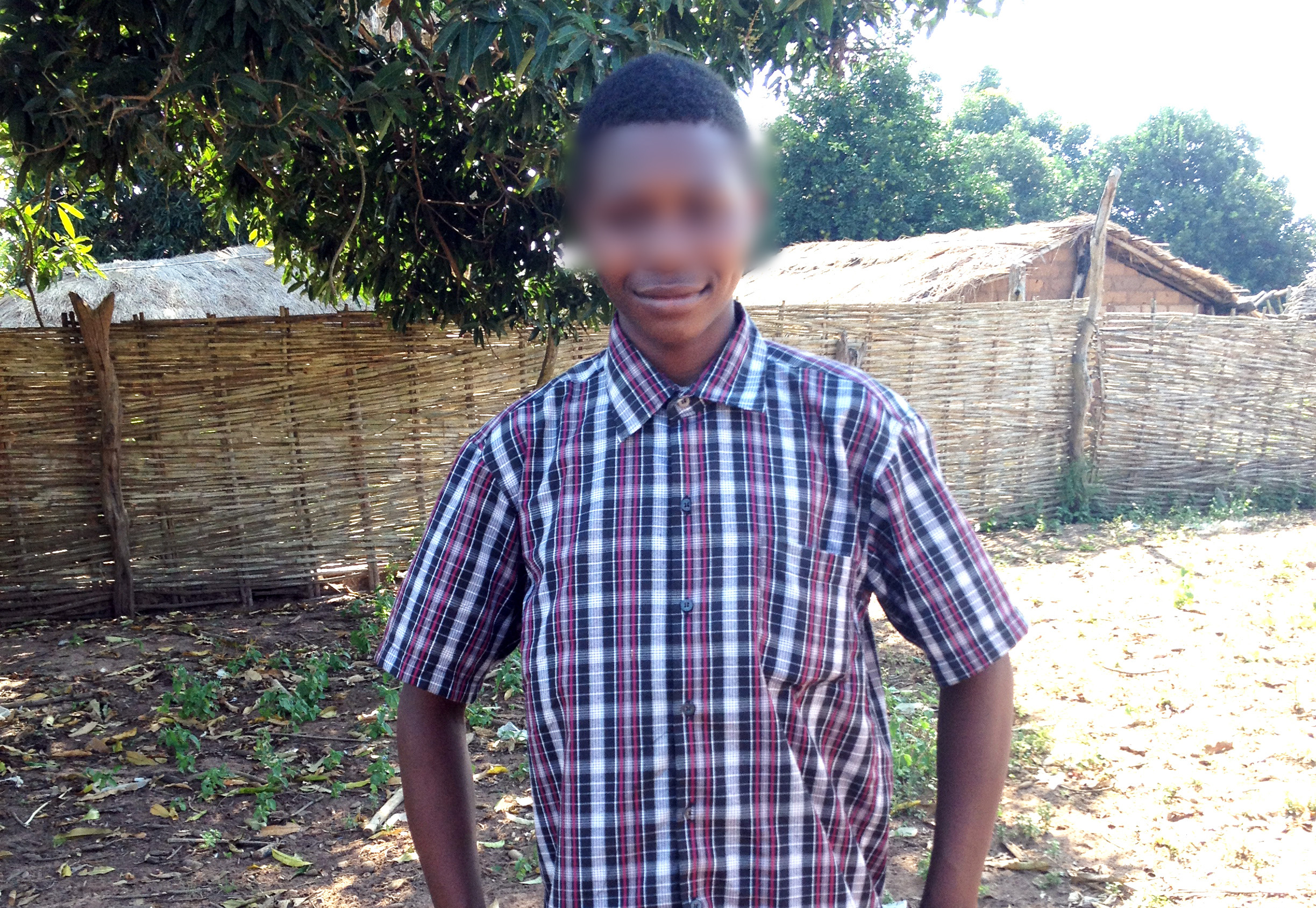For the last year and a half, Pauline Zerla has lived in the remote town of Obo in Southeastern Central African Republic (CAR), overseeing Invisible Children’s protection, detection, and recovery programs.
As her time with Invisible Children is coming to an end and she prepares to move back home to her native, Brussels, she offered to share some reflections about her time in CAR and her work with the Invisible Children team. She especially wanted you to know about a young central African boy named James*.

From Pauline:
In May of 2015, eight months I after I moved to Obo, CAR, to manage Invisible Children’s programs in LRA-affected areas of central Africa, I met a young man named James. Seven months later, I continue to think about him every day.
James was abducted by the LRA in 2014 while he was working in the fields near his hometown of Bangana, CAR. At 17, the LRA commanders considered him old enough to become a fighter and, after a period of indoctrination, he was given a weapon and forced to attack and loot villages across DR Congo.
By the summer of 2015, James’ group had been traveling by foot for several months when he began to recognize the landscape. After more than a year as a hostage of the LRA, he knew he was close to home. With unimaginable courage, James decided to risk it all and try to escape. And ever since that day, he has lived free from LRA captivity.
However, even after reaching safety, James’ journey has not been an easy one. It has required courage and hard work on his part, as well as the support of his community and Invisible Children.

Aerial photo of James’ hometown of Bangana, CAR.
Soon after returning home, James began having nightmares. He struggled to communicate with his family and felt responsible for the violent acts he committed while in the LRA. His uncle decided to bring him to Invisible Children’s office in Obo, where our team works hard to support the rehabilitation and reintegration of LRA escapees. We know that leaving the LRA is often just the first step in a long healing process. Once these brave men, women and children are out of LRA captivity, it’s our job to work with them, their families, and community, to ensure they are able to successfully restart their lives back at home.
During James’ time with our team in Obo, he stayed at the Invisible Children-supported Transit Center, which provides women and children who have escaped from LRA captivity with the critical material, psychological, and social support they needed in the first weeks of their freedom. The services provided at the Transit Center are also designed to support a smooth and successful transition back home to families and communities.
With the support and guidance of trained Transit Center partners, James was also able to spend time constructively interacting with other young people in the community who have been affected by the LRA. Much to James’ pleasure, this included a lot of football (translation: soccer). Our local partner, AFASVER, which has specialized training in trauma healing, gave James needed psychological support to help him begin to move forward from his past experiences in the LRA. While recovery looks differently for every returnee, for James, music played a key role in his healing process. After just two weeks, he was showing significant signs of encouragement and hope, and we were able to arrange his return home. It was difficult to say goodbye to him, but I was also deeply grateful to have met him, and grateful that Invisible Children was able to play a key role in his journey toward healing. He hasn’t had a nightmare since.

That could have been the end of this story, but the ripple effects continued. Inspired by the support Invisible Children provided to his nephew, James’ uncle volunteered to be an operator for Invisible Children’s Early Warning Network. To this day, he continues to help protect his own community and neighboring communities from LRA violence by reporting information about LRA movements and attacks in their area on a daily basis.
James and his uncle inspire me everyday to work hard in solidarity with all the others just like him who are still held hostage by the LRA. Just like James, there are hundreds of other men, women, and children, waiting and hoping for their chance to return home. And like James’ uncle, there are thousands of families hoping their loved ones are still alive and waiting for their return. When they do, our Invisible Children teams will be there to welcome them to freedom and ensure they receive the support they deserve.
In November, I had the opportunity to visit James’ home town of Bangana. Minutes after arriving, as I stood looking out across the village, I felt a gentle tap on my shoulder. When I turned around, there was James, standing in front of me with the same incredible smile I remembered from Obo. As we chatted, I asked him how he was doing, and he said something that I still think about today. He said, ‘I continue to carry on because it’s the right thing to do and because I still have friends in the LRA. I want to be the one who welcomes them home.”

For me, James’ story embodies why Invisible Children’s work in LRA affected communities is so important. James is just one of so many success stories that demonstrate what is possible when you combine the unparalleled strength and resilience of LRA survivors, with the skilled support of community partners, and the commitment of our Invisible Children teams in central Africa. Together we can reunite families, empower communities, and help former LRA captives and their families on the journey toward lasting healing.
My time as an official Invisible Children team member will be coming to an end soon, but my support for and belief in our programs will never end. Our work is strengthening the protection and the resilience of communities heavily impacted by LRA violence. I’ve seen first hand the impact of our work and it reminds me constantly that we can’t give up. We are making progress everyday. The impact on James’ life alone has made the last year and a half worth it for me personally. As James told me that day in Bangana, I too will continue to carry on because it’s the right thing to do, and because there are still others in the LRA waiting for their chance to come home and heal.
A special thanks to all of Invisible Children’s monthly donors. Your generous donations are the fuel that keeps our work going. The programs that helped James exist because of you. Even from halfway across the world, you have played a very special part in James’ incredible story of freedom.
CLICK HERE TO BECOME A MONTHLY DONOR AND SUPPORT OUR WORK
*James’ name has been changed to protect his identity.
Think people should hear about this?